
G點電視以新媒體介入性/別小眾運動,鼓勵及引導義工成為行動者、尋找自己感興趣的議題,學習營運媒體,為社群充權。請賞我們幾個拍手或一杯咖啡,讓我們支持平台及團隊持續運作。
"Routines are also discrimination": How do the media today portray sexuality/not a niche?

Written by: Jansen
Text Editor: Coco
Website Editor: CL
After the Hong Kong version of "Uncle's Love", the first BL drama in the history of Hong Kong TV, aired last summer, some netizens left a message under the stills of the two male protagonists kissing, saying that the audience can "take one of them as a woman", and the other will be rejected by the other. A netizen retorted: "Love is love, it transcends gender boundaries."
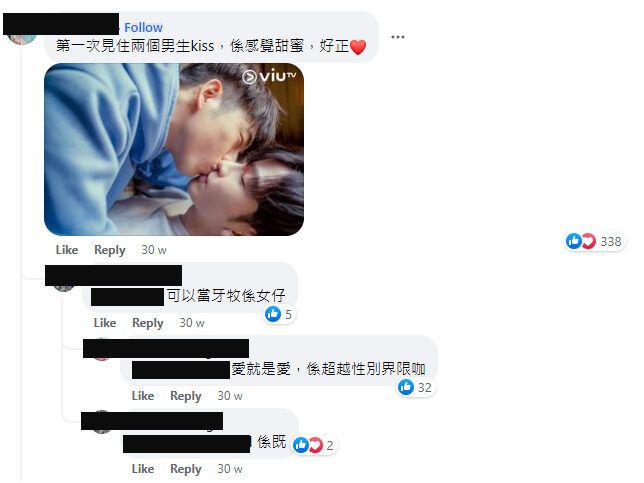
This message brought a lot of shock to Tan Huiyun, an independent journalist and university journalism lecturer, saying that the media had "talked about drooling... everyone can't get it" message, which can easily be conveyed to the audience through a set of episodes heart. In addition to lamenting the huge ripple effect of mainstream entertainment culture, Tan's shock also reflects the fact that the media have been more or less overwhelmed in reporting on gender/gender issues in recent years.
On January 15, 2022, she and "Uncle Uncle" director Yang Yaokai, gender studies scholar Dr. Huang Yuying, drag queen and Hong Kong and Taiwan "My Own" host Coco Pop attended the "Midnight", a civil group focusing on male and female workers in Hong Kong. "Blue" held a public lecture - "Sex/Gender Minority and Media Presentation". The lecture lasted for three hours. From the common misunderstandings and stereotypes of the media when reporting on the gender/gender minority, they talked about how the gender/gender minority should gain dominance in the interaction with the media. To be respected in the mainstream society, proper media exposure is crucial, but to achieve this goal, the media cannot rely solely on self-consciousness.
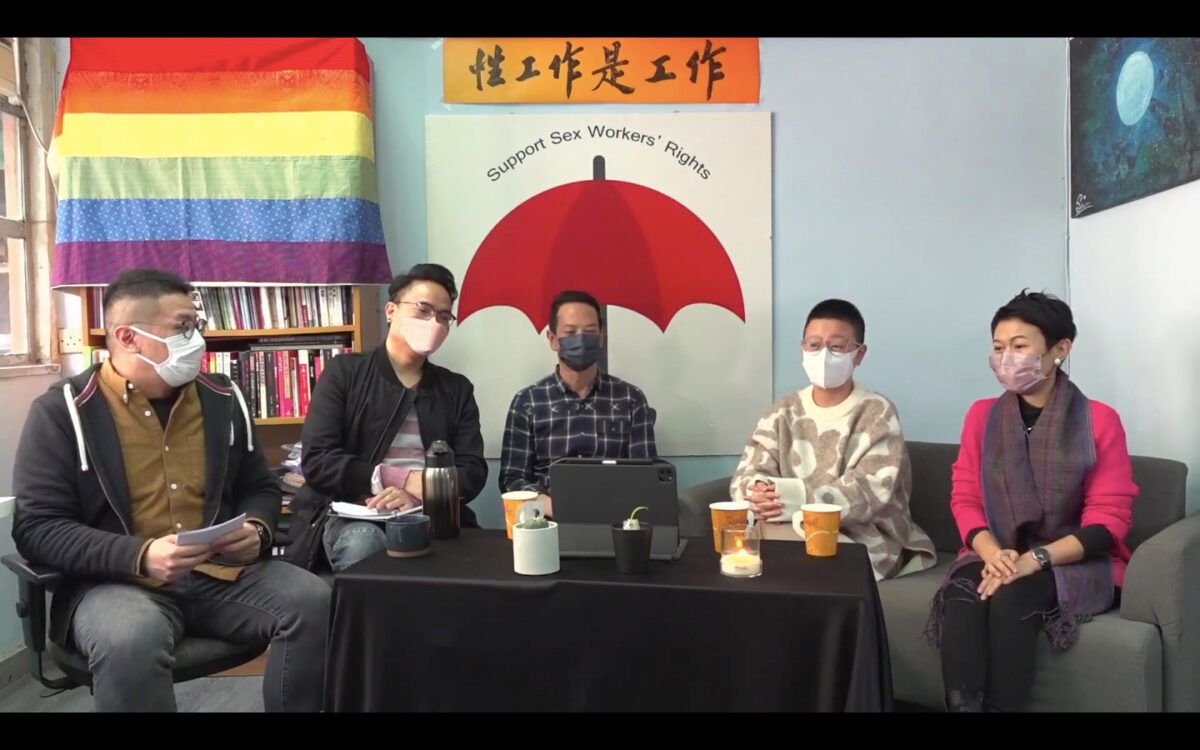
The reason why the Hong Kong version of "Uncle's Love" can break through the stratosphere and enter the mainstream is largely due to its plain and warm script. The development of the two male protagonists' personalities and love is full of the texture of daily life, and the opposite sex Lovers are no different.
De-dramatization is also one of the tenets of the script of the movie "Uncle Uncle". However, this once brought difficulties to the crowdfunding of the movie, because most investors felt indifferent after listening to the script. "They think, if you want to tell stories about elders or comrades, at least one person must die, a boy or a wife must be found out and then go out of the street," said director Yang Yaokai in his sharing.
Filming a documentary was asked to play a tragic ending Coco: I am not
Sadness is also almost a necessary tone in news media reports on gender/gender minorities. Coco Pop, who started doing drag shows in nightclubs in 2006, has received numerous interviews, and he summed up the routine of reporters: "Tends to be tragic stories or explosive topics."
Coco recalls a documentary about him made by a college student, which ends with him walking away slowly with a suitcase in his hand in the tragic background music. "I don't care! I don't want to talk to others. After washing all the lead, I'm going to start a business by myself." Coco said with a smile, "Maybe there are some things in the policy that are not related to us. It's fair, I can't get married, I can't get a public housing, or I can't even get a HOS... But in fact, our life is very simple, ordinary and happy. Take a picture that will make you cry."
Tan Huiyun denounced the media's cliché: "Showing what they (the media) think the minority wants to show, the sentiments they feel - such as inspirational and tragic, is a kind of discrimination." She believes that the public's acceptance Based on commonality, for disadvantaged groups, sometimes they should be "ordinary", and their similarities with heterosexual and cisgender people should be magnified.
Follow GDotTV Telegram Channel,
Stay up-to-date with the latest news on G-spot TV!
Discover new perspectives to spy on boys' school trans-girl old boys and win echoes
The "ordinaryization," or "normalization," Tan is talking about aims to break the stereotype of the gender/gender minority in the media. Director Yang Yaokai remembered that a couple in their 40s and 50s told him after watching Uncle Uncle that this was their first time watching a gay movie. Before that, they always thought that gays were young, westernized and fashionable, but they were not. After watching the movie, when they go home and see the watch watch downstairs, they will start to imagine: or he is gay, and also an ordinary person.
However, news has always pursued "uncommon" freshness and fun. When the media "ordinary" characters, how can they attract audiences? Tan Huiyun recalled an experience of interviewing a trans girl: the filming location at that time was the interviewee's alma mater, a famous school for boys with all religious backgrounds in Hong Kong. "Being a trans-girl old boy, but in a boys' school, it's all about running away," Tan said, "I think this message is good, first of all real education".
Tan deliberately amplified this point and shared it on Facebook, and the original report caused a great response. A politician who is also a former student of the school also sent her a private message to thank her: "Thank you for visiting my junior sister."
"The news point is yours, and the novelty is yours. This is a matter of reporter skills." Tan Huiyun concluded.
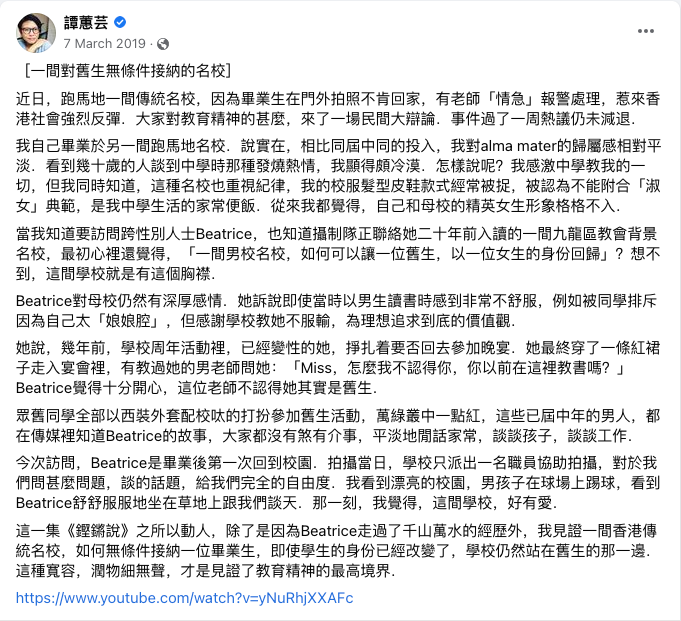
"Ordinaryization" is not the same as talking about sexual discoloration
In a special feature published in 2019 by Ming Pao entitled "Mars Library: Media Shaping Sexual Minority Stereotypes" , it pointed out that in the process of "normalizing" the portrayal of gender/gender minority groups, the media will not only emphasize In addition to the commonality between homosexuality and heterosexuality, there is also a tendency to "de-sexualize (that is, not talk about sex)" for homosexual intimacy.
Erotic autonomy has long been associated with the stigma of the gender/gender minority, which may be one of the reasons why the media has reduced the sexual depiction of this group. But the movie "Uncle Uncle" didn't do that. The gay sauna, which is hidden in the city, is one of the most watched scenes in the movie. Yang Yaokai's approach is to present this popular place where comrades seek pleasure as a space for comrades to warm each other. "I only want to create a good community (community) feeling, a comfortable, homy (home) feeling, because Hong Kong's saunas particularly (especially) have this function (function)."
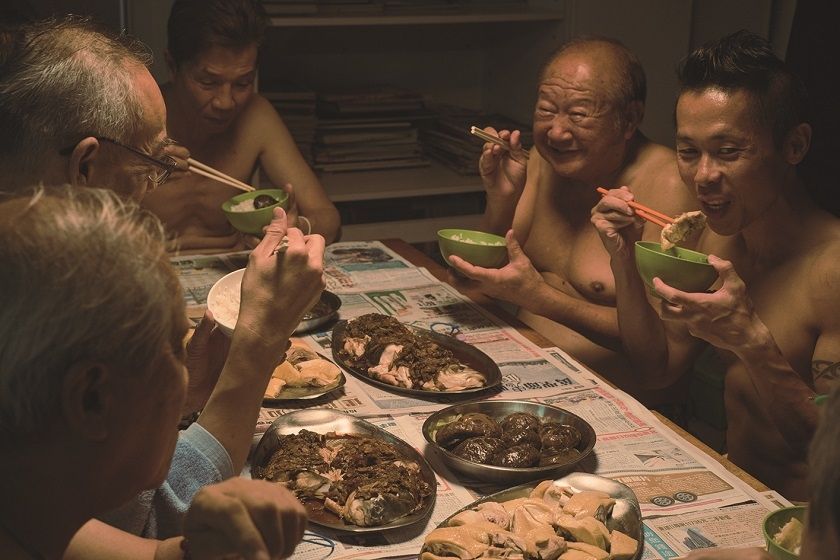
In addition to the gay sauna, the movie also has a plot of gays hunting in public toilets, and the latter has been questioned by insiders for the necessity of this plot. Yang said that the core of his filming is authenticity. Through research and interviews before the filming, he learned that there are still elderly comrades who go to public toilets to hunt for beauty. Some of them are married elderly people, or people who do not identify with their same-sex identity. Afraid of being caught in the gay sauna frequently, he went to the public toilet, "it's a kind of spiritual holiday".
In addition to realistically presenting two scenes related to homosexuality, the director also shows the struggle and self-rescue of the elderly comrades under the long-term repression of society. This makes more sense than discarding sexual depictions for public acceptance.
Why are most lesbian movies pure love movies?
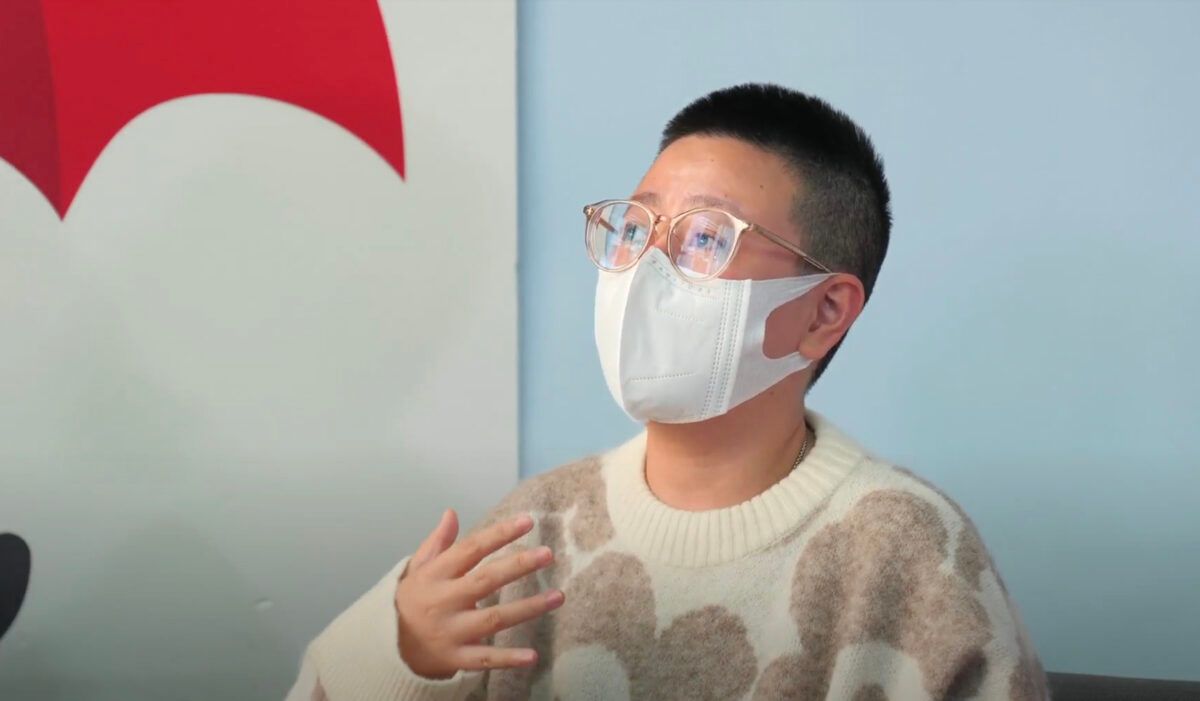
Dr. Huang Yuying, a gender studies scholar, believes that "de-sexualization" is more evident in lesbian-themed films: "Many films describe the eroticism of lesbians very cleanly, that is, they don't have sex!"
She believes that part of the reason is that intimacy between women is acceptable to the public if they appear in an open social framework, which compresses the exclusive space of lesbians - not only in movies, but also in real life. Chinese lesbian bars and other venues have also consistently been fewer than gay men. Conversely, gay sex has been criminalized in Hong Kong for 126 years. Without the same degree of oppression, there is no equal need for resistance.
Another reason is the shackles of chastity that society imposes on women. Such ideas are deeply ingrained and hard to shake.
Huang Yuying believes that this has led to the fact that there are not many lesbian movies, and the plots are mostly dull. A single media presentation, coupled with gender discrimination against women in the workplace and in society, has made lesbians even less right to speak in the gay movement.
Being too politically correct fears "doing bad things with good intentions"
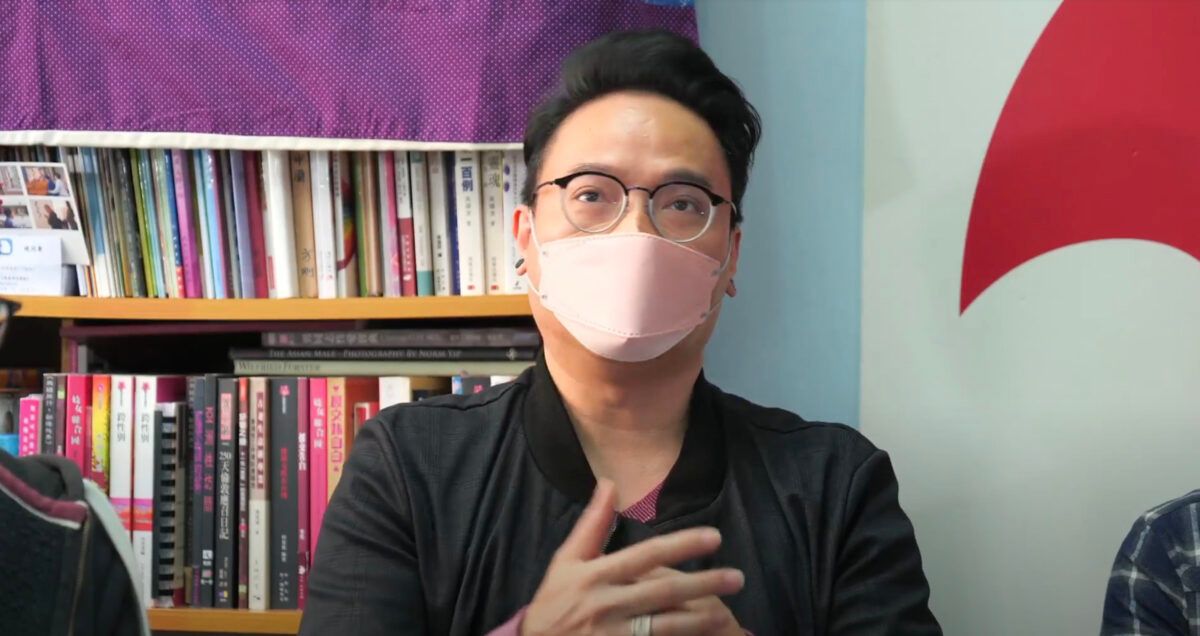
Sexual self-censorship in the media sometimes stigmatizes gender/gender minorities to avoid mishandling. Once this kind of "good intentions" to protect or justify the group's name spreads, it may go to the other extreme: too politically correct.
This is especially evident in the film and television industry. Coco said: "I think even if the family is on Netflix, there must be some LGBT characters on the show... Sometimes you think, 'Hey, all the girls Season 1 are a TB (Tomboy), Season 2 is just I've become transgender", but he doesn't seem to have an explanation."
Yang Yaokai pointed out that the gender/gender niche is a trend in the film and television industry. Recently, some people have encouraged him to write a TV series, "I write a gay story, and I will return a note: Hey 𠵱jiaxing, what is it, what is it, you can add more flavors, and fry more flavors."
This mechanization of narrative caused by too political correctness spreads from gender, race, to gender/gender niches, everywhere. Tan Huiyun recalled her previous visit to Johnnie To. He said that young people always like to do stories about issues first. Tan believes that this is putting the cart before the horse, "the plane is so flat as a propaganda (propaganda)", and the final result is being scolded as "Zuojiao" and rejected, causing secondary harm to the described group.
Gender/gender minorities also need training and should learn to "borrow the media"
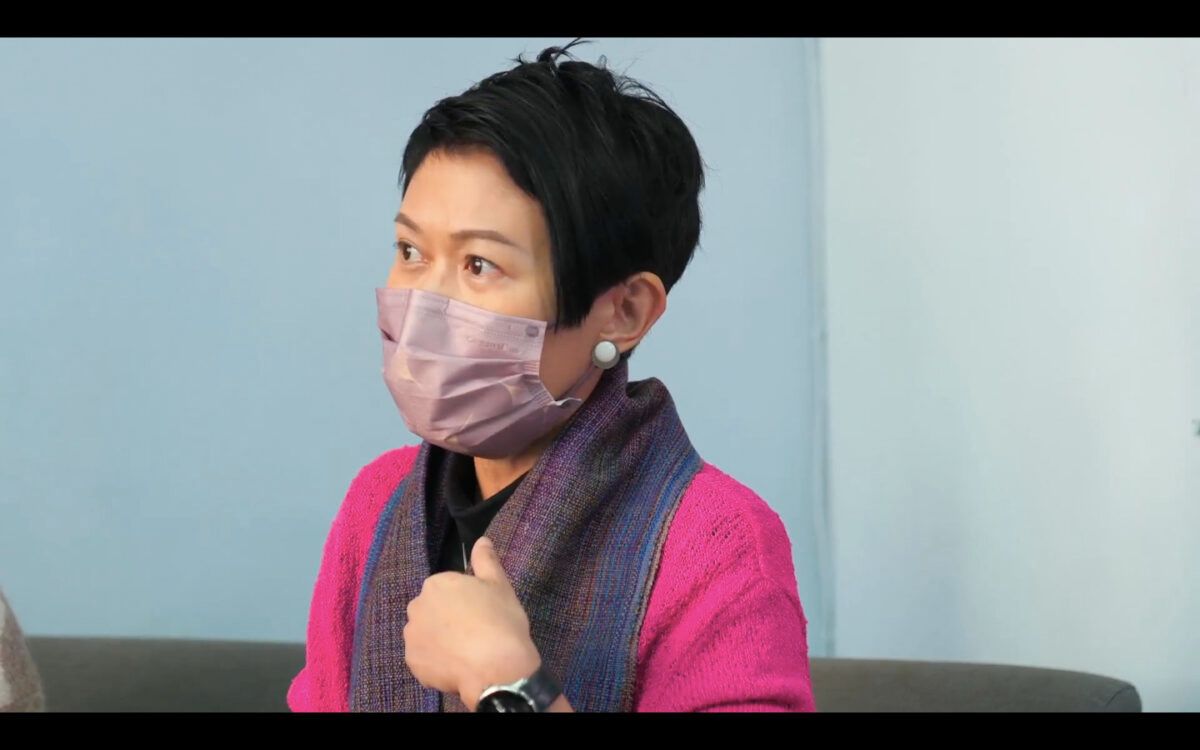
Tan Huiyun believes that "good intentions do bad things" is partly due to the inability of the recorders: "The turnover of journalists is too high, but journalists can dig deeper or fresher angles before they are cultivated." Other speakers agreed that they It is believed that the media are still struggling to understand the basic concepts of LGBT after so many years, and that new words such as "pansexual", "non-binary" and "gender affirmation surgery" are constantly emerging, which is also full of challenges for the media .
Tan Huiyun believes that the gender/gender minority should be more actively trained in dealing with the media. In the process of learning to interact with the media, they know what they want to present and gain the dominance of the discourse. For example, if the interviewee can understand what the target audience of the other media is—middle class or grassroots, financial circle or other workplaces, they can take the initiative to tell stories that are beneficial to them and interest them. "The media can borrow it. You can tell a story that a reporter thinks you want to hear, but it's actually a story you want to tell."
Tan added that there are some vulnerable groups. Before meeting reporters, you should be mentally prepared, including anticipating what questions the reporters will ask, and even screening trusted reporters. N times of trauma".
Point G requires working capital,
Click here to learn about the N methods that support us
Have media attitudes towards gender/gender niche issues improved?
Although Tan Huiyun is disappointed with the media's performance in presenting the gender/gender minority, she also admits that the environment has improved in recent years: "Compared with many social issues, the gender/gender minority is in a relatively poor state. Poor, social ethos is good for gender/gender niche issues."
But when Yang Yaokai was looking for an actor for "Uncle Uncle", the experience of being rejected within seven seconds showed the other side of society. Some actors even asked him after reading the script if the uncles in the movie would use real gay actors in the scene where they eat together, because the actor was afraid that he would get AIDS if he ate with them.
Yang admits that this is an isolated case, and that the actors he is looking for are all in their twilight years, so his thinking is bound to lag. Although "Uncle Uncle" experienced many twists and turns, it was finally released smoothly and earned good reputation. Yang Yaokai thought that the success of the film would make his preparations for a new film smoother - he revealed that he planned to shoot a pair of 60-year-old lesbians in the new film.
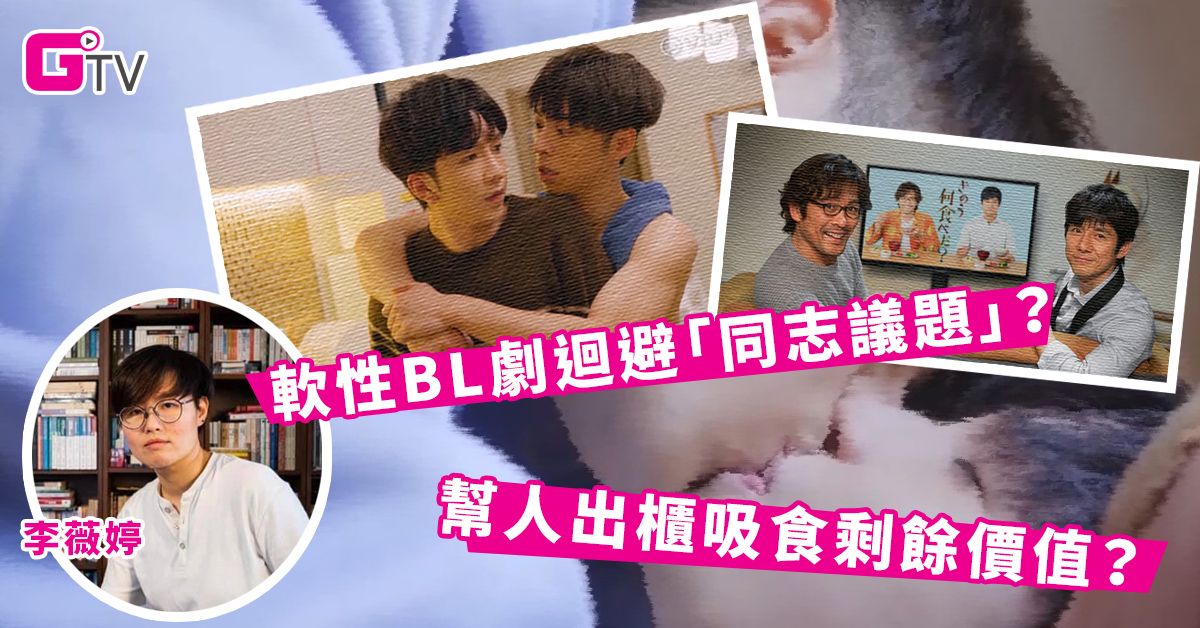
Further reading: BL dramas, turning over old accounts and helping people come out... are all media operations | Li Weiting
Original link G-spot TV
Like my work?
Don't forget to support or like, so I know you are with me..
Comment…